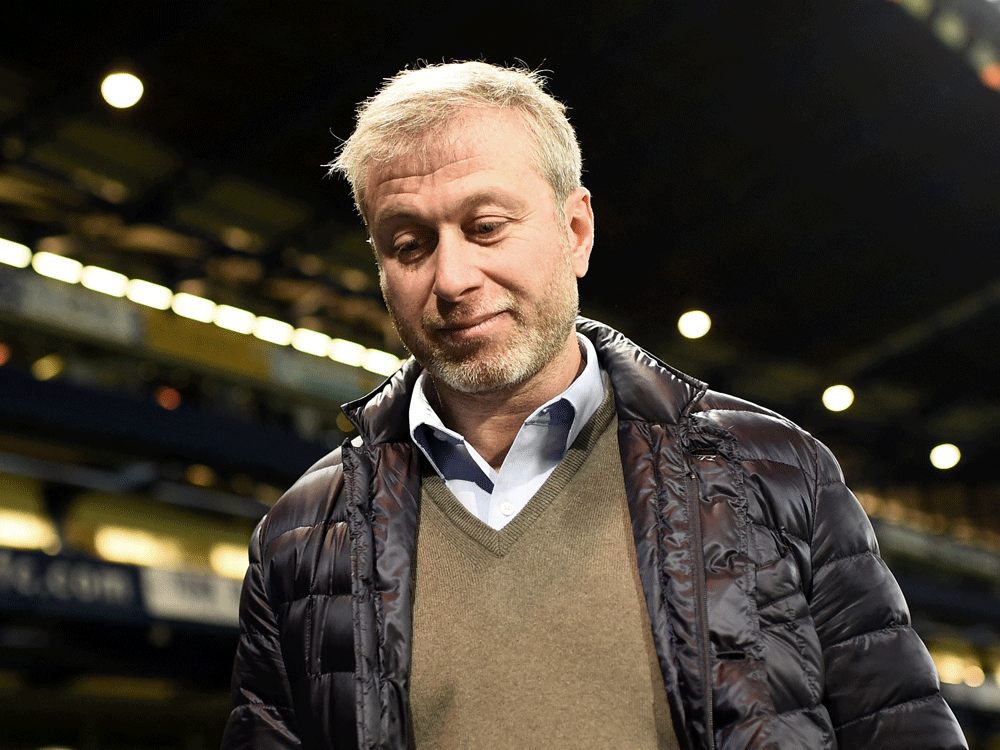Evraz’s Canadian operations could face headwinds after top shareholder Roman Abramovich hit with sanctions

Among the wild cards is whether sanctions will be extended to other Evraz owners, and whether assets could yet be frozen, seized and sold

Article content
The Canadian operations of Evraz PLC, a steel company whose largest shareholder, Roman Abramovich, has been added to Canada’s list of individuals sanctioned in response to Russia’s invasion of Ukraine, are continuing as usual for now. But industry watchers say the association with the Russian oligarch and ongoing uncertainty around Canada’s sanctions regime may be enough to cause skittishness among its customers and suppliers.
Advertisement 2
Story continues below
Article content
Abramovich was one of five individuals newly sanctioned by Canada on Friday. Officials also said they were barring 32 Russian companies and government entities from receiving defence equipment or supplies from Canada.
“The sanctions on Russian officials and oligarchs like Abramovich are directed at them so that they cannot profit or benefit from economic activities in Canada or the hard work of Canadians working in companies that they have investments in,” Prime Minister Justin Trudeau said. “We are obviously going to watch carefully but we are confident that this will not impact the hard-working Canadians who are doing good work in companies across the country.”
Ari Pandes, an associate professor of finance at the University of Calgary’s Haskayne School of Business, said that while there appears to be no immediate implication in Canada, the “fluid” situation could nevertheless hurt the steel maker’s business.
Advertisement 3
Story continues below
Article content
“There is certainly turmoil,” he said. “This type of uncertainty can bring about further losses as customers, suppliers, etc., grow anxious.”
Among the wild cards is whether sanctions will be extended to other Evraz owners, and whether assets could yet be frozen, seized and sold.
“I believe other oligarchs also have shares, so that adds another layer of risk,” Pandes said.
-

Canada imposes sanctions on Russian tycoon Roman Abramovich
-

Meet the Russian oligarchs with investment ties to Western Canada
Abramovich owns a 28.64 per cent stake in Evraz PLC, the parent company, whose London-listed shares were suspended from trading earlier this week. On Friday, the board of the steel and coal mining business, whose operations are largely based in Russia, resigned.
Advertisement 4
Story continues below
Article content
Evraz North America, which operates as a wholly owned subsidiary, has operations in Oregon and Colorado, as well as Camrose and Red Deer, Alt.a, and Regina, Sask. The company has about 1,800 employees in Canada, and has provided about 58 per cent of the pipe used in the Trans Mountain pipeline expansion project in western Canada. Initial estimates in 2017 were that the Regina-based Evraz operation would contribute 75 per cent of the pipe needed.
While Abramovich’s assets have been frozen in the U.K, the governments of Alberta and Saskatchewan are keen to keep the operations running here.
Scott Moe, the premier of Saskatchewan, said in a statement Friday that his government has been in contact with Ottawa “to ensure there are no local impacts to operations or employment at the EVRAZ Regina site” as a result of the new sanctions against Abramovich.
Advertisement 5
Story continues below
Article content
“We have been assured these sanctions will not negatively impact the mill, and we will continue to engage with the federal government to ensure that continues to be the case,” Moe said.
Alberta Premier Jason Kenney’s press secretary Justin Brattinga said Kenney’s position remains that individuals, rather than companies, should be subject to sanctions and asset freezes.
“Freezing the assets of one minority shareholder would not require freezing and seizing Evraz’s assets and for the company to cease operation,” Brattinga said. “We are calling for the sanctioning of an individual.”
But a former government official says the decision to sanction individuals does not go far enough. Thomas A. Lukaszuk, a former deputy premier of Alberta, said Friday that the provinces should be doing more.
Advertisement 6
Story continues below
Article content
“What needs to happen now, at provincial levels, is an immediate (barring) of procurement of any products sourced from oligarch-owned companies,” he said.
“In Canada, most infrastructure projects that utilize steel are provincial in nature: Construction of highways, bridges, schools and pipelines, are usually within provincial jurisdiction.”
While an argument could be made for freezing assets, Lukaszuk, who was Alberta’s deputy premier before running unsuccessfully for Conservative leadership in the province in 2014, said a meaningful response would be “precluding these companies from participating in request for proposals, or procurements.”
Governments have found themselves in the delicate position of trying to strike a balance between the pain of sanctions for those with ties to Russian president Vladimir Putin and the protection of ordinary citizens, jobs and projects.
Advertisement 7
Story continues below
Article content
“Our politicians have admitted there could be collateral damage on regular citizens from the sanctions the government has imposed and is contemplating imposing, so the risks, however remote, are there,” said Pandes.
“And sometimes, you don’t know how far the tentacles reach on some of these sanctions.”
Mark Warner, an international trade and competition lawyer at MAAW Law in Toronto, said at the very least the Canadian government should be doing more to explain how, with the current sanctions, it is keeping oligarchs such as Abramovich from profiting from businesses that are continuing to operate as usual.
“They have made some comments about him not being able to benefit from the operations in Canada,” he said. “I know how that’s working in the U.K. I don’t know how in Canada.”
—With additional reporting from Reuters
Advertisement
Story continues below







